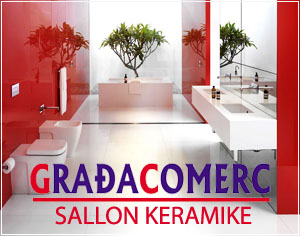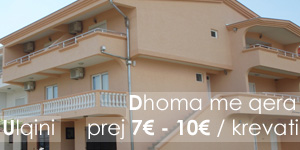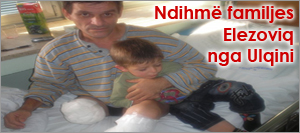Paper Details Russian-Backed Investments in Montenegrin Littoral
![]()
BBC Monitoring European, 2008-01-14
[Report by Veseljko Koprivica: “Concreting the Foam”] Podgorica – Russian capital is changing the scenery along the Montenegrin coastline at full steam, while Russian citizens, both businessmen and tourists, stand a good chance of becoming the majority nation in Montenegro.
Russian direct investment in Montenegro is considerably greater than in any socialist bloc country, the EU’s Foreign Policy Directorate General reported recently. The report, prompted by the claims that Russians are often using Montenegro to launder their money, says that most of Russian capital in Montenegro is invested in basic industries, hotels and real estate. During a meeting between Russian and Montenegrin Presidents Vladimir Putin and Milo Djukanovic year before the last, it was revealed that Russian capital investment in Montenegro exceeded 2bn euros. One can only guess by how much it has gone up in the mean time!
Moscow Mayor Yuriy Luzhkov announced at that time that in two years’ time the number of Russian tourists in Montenegro would make up 50 per cent of the total of foreign visits. This prediction is yet to be fulfilled. Last year, Russian tourists accounted for 9.1 per cent of all foreign tourists, but the number of Russian citizens in Montenegro’s coastal cities is growing steadily. They have been buying hotels, apartments, building plots in attractive locations. A Russian language weekly is being published in Budva, and there are no Russian language graduates from the School of Humanities in Niksic among Montenegro’s unemployed.
Most of the hotels along the stretch of the coast between Ulcinj and Herceg Novi are owned by the Russian rich or companies. They also own many attractive development plots along the coast where holiday complexes and resorts will be eventually built.
Russian billionaire Andrey Dobrov, director general of Belon Group, a Russian coal mine and metal giant, bought the Grand-Lido hotel complex in Ulcinj for 10.8m euros. To date, this is Montenegro’s most expensive privatized hotel. The Grand-Lido complex covers an area of 96,000 square meters along Ulcinj’s Velika Plaza [Long Beach]. Dobrova, a Budva-based company, plans to demolish Grand-Lido and build a hotel for the Hilton chain of hotels. ![]()
![]()
![]() The owner of Ulcinj’s Hotel Otrant is the Russian company Barkli SK-Montenegro.
The owner of Ulcinj’s Hotel Otrant is the Russian company Barkli SK-Montenegro.![]()
![]()
![]()
![]()
About 20m euros will be invested in a new hotel planned to be opened in 2009. Recently, Russians bought 29 residential properties in the Ulcinj suburb of Liman.![]()
![]()
The Russians are steadily conquering the Bar Riviera as well. A Russian company, Sonuba-Montenegro, paid 32.3m euros for 202,000 square meters of land near Sutomore where it plans to build hotels, villas and apartments.
Russian companies are involved in the construction industry and are building apartments for sale on the market. The Russian- Montenegrin CIRUS-invest company of Bar is currently building a residential and business complex on about 5,500 square meters; in Petrovac, Russians bought the Fourth July hotel and the Kostelo bar.
The Russian owned Negatours is the owner of the As hotel in Perazica Dol. Work is near completion on the six-year project to renovate the hotel, add extra 14 stories, build villas, three helipads, and a marina for 50 yachts up to 25 meters. The total investment will exceed 40m euros.
In the vicinity, another Russian company, VAS Invest Montenegro, bought a 13-hectar plot for 207 euros per square meter. They plan to build an elite hotel city with a capital of 50m euros.
Russian citizens have bought houses and moved into several abandoned villages in the hills above Sveti Stefan.
Most of the hotels along the beach in Becici are owned by Russian citizens. The Montenegro-Russian company Montenegrostars owns the three largest hotels – Splendid, Montenegro, and Blue Star. The majority owner of Splendid, the most luxurious hotel on the Montenegrin coast, is Viktor Ivanenko, former Russian intelligence chief and former director of the now defunct giant Yukos.
Russian capital was also invested in the purchase and renovation of Hotel Avala in Budva. A large business centre in Budva is also financed with Russian money. Russian investors are also involved in the construction of a new high-rise hotel and the Astra Montenegro residential complex.
Russia’s youngest billionaire Sergey Polonsky and his Mirax Group of companies are building a 30-story hotel, time share apartments and luxury villas on the Zavala peninsula right on the sea front.
The local, Mediterranean, wildlife, hills, beaches, and so forth are disappearing under the onslaught of these and many other developments mushrooming along the Montenegrin coast with the help of Russian capital. Montenegro’s coastal area is being concreted over at an unprecedented rate.
The Russians also bought large tracts of land inland from Grblje.
Russian capital is extending its tentacles to conquer Prcanj, Kotor and Risan where blocks of apartments are being built for sale to private buyers. The Russians have bought Hotel Xanadu in Kumbor, and have leased Villa Galeb in Igalo. Russian oligarchs have bought up land on the Lustica peninsula and in Zanjci.
Moscow Mayor Yuriy Luzhkov owns property in Herceg Novi. His company bought a 30,000 square meter site for 4m euros in his wife’s name. Arza, a historic Austro-Hungarian fort, has also been sold.
The Euroland company which is apparently owned by the family of Dmitriy Medvedev, Russian presidential candidate, bought a 2,500 square meter site from footballer Matija Kezman in downtown Herceg Novi. A 15-hectar estate in Lustica was bought by the Budva- registered Russian agency MVE Adriatik for 17m euros. The Lalovina complex in Meljine was sold for 18m euros. There are plans to build apartment complexes in Bijela, Kumbor, and Zelenicke Zmijice.
[Box] In the Shape of State Border
Aleksandr Belyakov bought the former Army Centre in the Stari Grad part of Herceg Novi from the Montenegrin government. He built an extension which threatened the old part of Stari Grad. In collusion with local authorities he was allowed to turn a chapel at the Savina city cemetery into a Russian church. Belyakov also bought a villa near Baosici around which he has built a wall over 30 meters long and in the shape of Montenegro’s state border.
Originally published by Danas, Belgrade, in Serbian 9 Jan 08.
(c) 2008 BBC Monitoring European. Provided by ProQuest Information and Learning. All rights Reserved.






